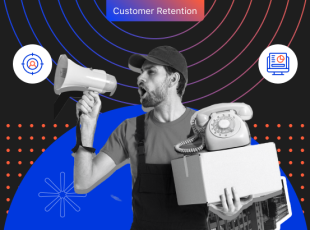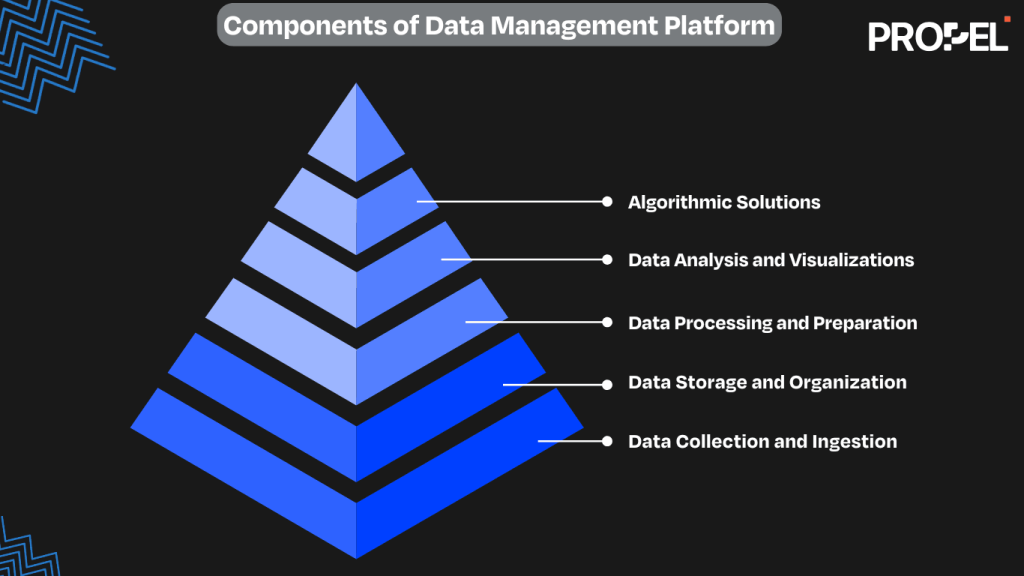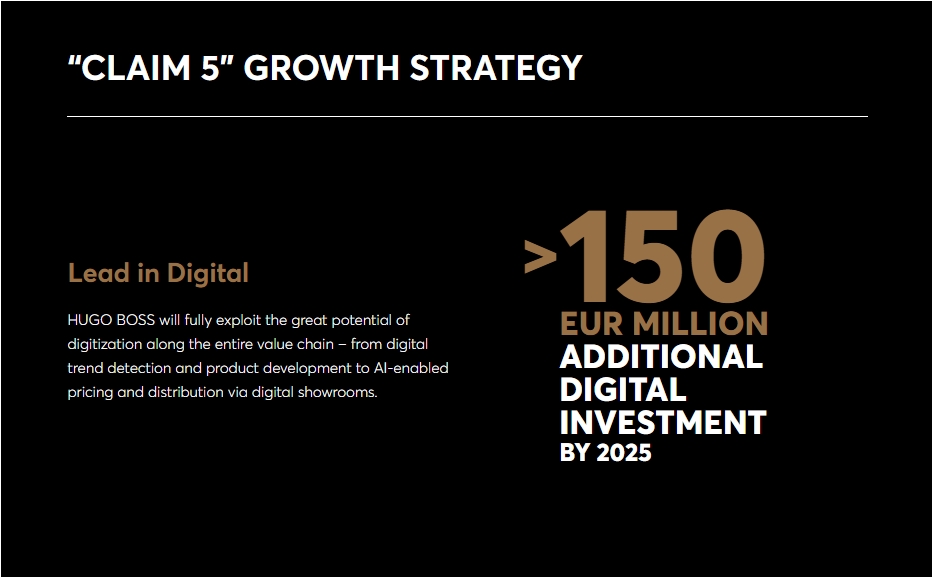
In the fast-paced world of luxury retail, creating unforgettable customer experiences is the key to success. Hugo Boss, a renowned luxury fashion brand, has taken the lead in employing data analytics and lifecycle marketing strategies to deliver personalized shopping experiences that resonate with their clientele. By leveraging the power of MarTech (Marketing Technology), Hugo Boss has set a new standard in the industry, showcasing how data-driven insights can revolutionize the way brands connect with their customers.
Unorganized data costs US nearly US$3 Trillion every year. With issues ranging from operational inefficiencies to missed revenue opportunities, bad data can heavily impact a business. Thus collecting and organizing data from various sources is extremely important for making data-driven decisions. Not adhering to good data management practices can also lead to lapses in security.
Customer data management is the foundation of any successful marketing strategy, especially in the luxury retail sector. By collecting, analyzing, and leveraging data, brands can gain valuable insights into their customers’ preferences, behaviors, and purchasing patterns. This information enables brands to create targeted marketing campaigns, personalize product recommendations, and deliver seamless experiences across multiple touchpoints.
Data Collection: Gathering relevant data from various sources, such as website interactions, purchase history, social media engagement, and in-store activities.
Data Integration: Consolidating customer information from multiple channels into a unified database, creating a comprehensive view of each customer.
Data Analysis: Utilizing advanced analytics tools to identify patterns, segment customers, and derive actionable insights.
Data Security: Ensuring the protection of data through robust security measures and compliance with privacy regulations.
By mastering these aspects of customer data management, luxury brands can build a strong foundation for delivering personalized experiences, fostering long-term customer loyalty, and improving customer retention. A Data Management Platform (DMP) consolidates all the processes and components of data management system in a single tool.

CDP does everything from collecting and cleaning data to deriving useful insights from it
Lifecycle Marketing is a strategic approach that focuses on engaging customers at every stage of their journey with the brand. From initial awareness to post-purchase engagement, lifecycle marketing aims to create meaningful interactions that drive customer satisfaction and loyalty. For luxury brands, implementing effective lifecycle marketing strategies is crucial to maintaining a competitive edge and building lasting relationships with customers.
Awareness: Attracting potential customers through targeted advertising, social media presence, and influencer partnerships.
Acquisition: Converting prospects into customers through personalized offers, seamless online and in-store experiences, and exceptional customer service.
Engagement: Nurturing customer relationships through personalized communications, exclusive events, loyalty programs, and value-added services.
Retention: Encouraging repeat purchases and brand loyalty through targeted promotions, personalized product recommendations, and continuous engagement.
Advocacy: Turning satisfied customers into brand advocates who spread positive word-of-mouth and drive referrals.
By implementing tailored strategies at each stage of the customer lifecycle, luxury brands can create a holistic approach to customer engagement that drives long-term success.
Hugo Boss has demonstrated a remarkable ability to execute lifecycle marketing strategies that set them apart in the luxury retail landscape. By leveraging customer data, MarTech and a strong focus on customer retention, Hugo Boss has created a seamless and personalized experience for their customers across all touchpoints.
Personalized Marketing Communications: Hugo Boss utilizes insights gathered from data points to create highly targeted marketing campaigns. By segmenting their customer base based on demographics, preferences, and purchase history, they can deliver personalized email campaigns, product recommendations, and promotional offers that resonate with each individual customer.
Seamless Omni-Channel Experience: Hugo Boss has successfully integrated their online and offline channels to provide a consistent and seamless experience for their customers. It brings personalization alive through integrated omni-channel experiences like:
• Recognition of loyalty members in-store via sales associate tablets
• AR virtual try-ons to visualize pieces digitally
• Fitting room tablets to request items and check inventory
Exclusive Events and Experiences: Hugo Boss engages their high-value customers through exclusive events, such as fashion shows, product launches, and VIP shopping experiences. These events create a sense of exclusivity and strengthen the emotional connection between the brand and its customers.
Personalized In-Store Service: Hugo Boss empowers their in-store staff with customer data insights to deliver personalized service. Sales associates can access customer profiles, including purchase history and online browsing, to provide tailored recommendations and create a more intimate shopping experience.
Loyalty Rewards and Perks: Hugo Boss has implemented a sophisticated loyalty program that rewards customers for their engagement and purchases. Members enjoy exclusive benefits, such as early access to new collections, special discounts, and invitations to VIP events. This loyalty strategy encourages repeat purchases and fosters long-term brand advocacy.
Supported by a connected suite of marketing technologies, store associates have the tools to continue personalized dialogues offline. This seamless experience meets rising consumer expectations around understood and valued relationships with the brands they love. Hugo Boss has made significant investments in digital assets to provide a state-of-art customer experience.

HUGO BOSS’ investments in data-first digital assets (Source: Hugo Boss)
Customer journey software plays a pivotal role in enabling luxury brands like Hugo Boss to deliver personalized shopping experiences and improve customer retention. These software solutions provide a centralized platform for managing customer data, automating marketing workflows, tracking customer interactions across multiple channels.
Customer Data Management: Centralizing customer information from various sources into a single Customer Data Platform (CDP), allowing for a comprehensive view of each customer’s profile and interactions.
Customer Segmentation: Enabling brands to segment their customer base based on demographics, behaviors, and preferences, facilitating targeted marketing campaigns, and personalized experiences.
Omni-Channel Integration: Connecting various channels, such as website, mobile apps, email, and in-store systems, to provide a seamless and consistent experience across touchpoints, enhancing customer retention.
Personalization Engines: Utilizing AI and machine learning algorithms to deliver real-time personalized product recommendations, content, and offers based on individual customer preferences and behaviors, contributing to a strong retention strategy.
Marketing Automation: Automating repetitive tasks, such as email campaigns, social media posts, and targeted ads, to streamline marketing efforts, improve efficiency, and support customer retention.
Analytics and Reporting: Providing insights into customer behavior, campaign performance, and ROI, enabling data-driven decision-making, continuous optimization, and the development of effective retention strategies.
By leveraging customer journey software, luxury brands can gain a deep understanding of their customers, orchestrate personalized experiences across channels, measure the impact of their marketing efforts, and up their retention game. This technology empowers brands like Hugo Boss to stay ahead of the curve in an increasingly competitive and customer-centric luxury retail landscape
Hugo Boss’s success in implementing lifecycle marketing strategies, leveraging customer data through MarTech, and focusing on customer retention sets a powerful example for luxury retail brands. By placing the customer at the center of their marketing efforts, utilizing advanced technologies to deliver personalized experiences, and implementing effective retention strategies, Hugo Boss has cultivated a loyal and engaged customer base.
As the luxury retail industry continues to evolve, brands that prioritize customer data management, embrace lifecycle marketing strategies, invest in customer journey software, and emphasize customer retention will be well-positioned to thrive. By following in Hugo Boss’s footsteps and adopting a data-driven, customer-centric approach, luxury brands can create meaningful connections with their customers, drive long-term loyalty, and secure a competitive edge in the market.
In today’s digital age, customers expect nothing less than exceptional, personalized experiences from luxury brands. By harnessing the power of customer data, MarTech, and retention strategies, brands can rise to the challenge and deliver the kind of unforgettable experiences that create lasting customer relationships and drive business growth.

Rushabh Menon is a seasoned B2B growth and product marketing leader currently heading GTM strategy at Propel. With a strong foundation in strategic planning and execution, he is known for his analytical approach and commitment to impactful, data-driven marketing. An alumnus of IIT Madras and IIM Shillong, Rushabh brings valuable expertise in driving market expansion with a focus on continuous learning and improvement.
Got Questions? We Have Answers!
Hugo Boss leverages customer data to create personalized experiences, segment customers, and execute targeted marketing campaigns, which help foster loyalty and increase customer retention in the luxury retail space.
Customer data management enables luxury brands like Hugo Boss to consolidate and analyze customer information from multiple sources, helping create personalized experiences and improving retention through targeted lifecycle marketing strategies.
Lifecycle marketing allows luxury brands to engage customers at every stage of their journey, from awareness to advocacy, building strong, lasting relationships and enhancing customer retention.
Customer journey software helps luxury brands by managing customer data, automating marketing processes, and providing insights that drive personalized, consistent experiences across channels, which are key for retention.
Hugo Boss employs strategies like loyalty programs, exclusive events, personalized communications, and seamless omni-channel experiences to build loyalty and improve customer retention in luxury retail.

Propel specializes in customer lifecycle marketing, helping consumer brands boost retention & reduce churn with tailored strategies and our AI-augmented platform, AURA.
Book a call with our experts and get started today!